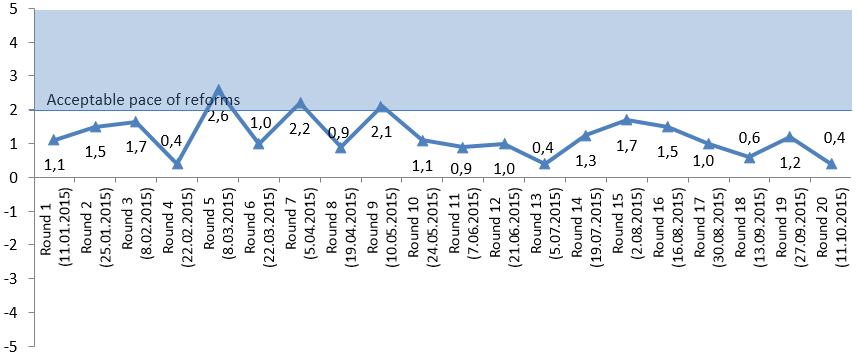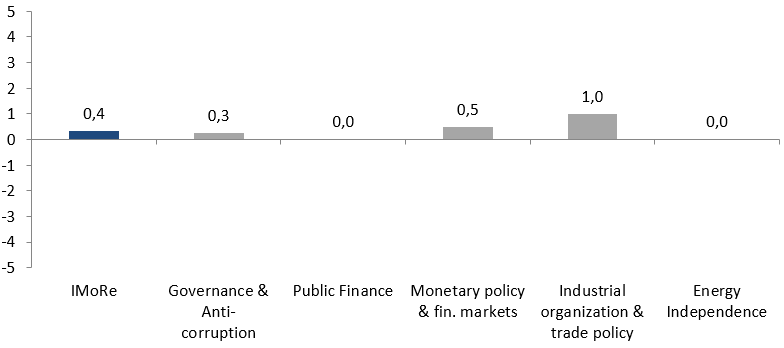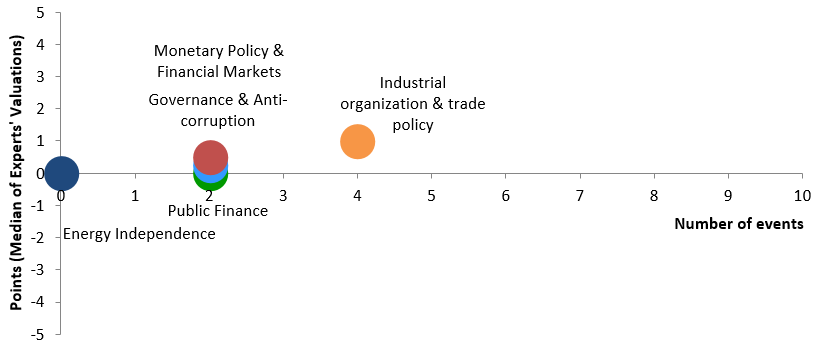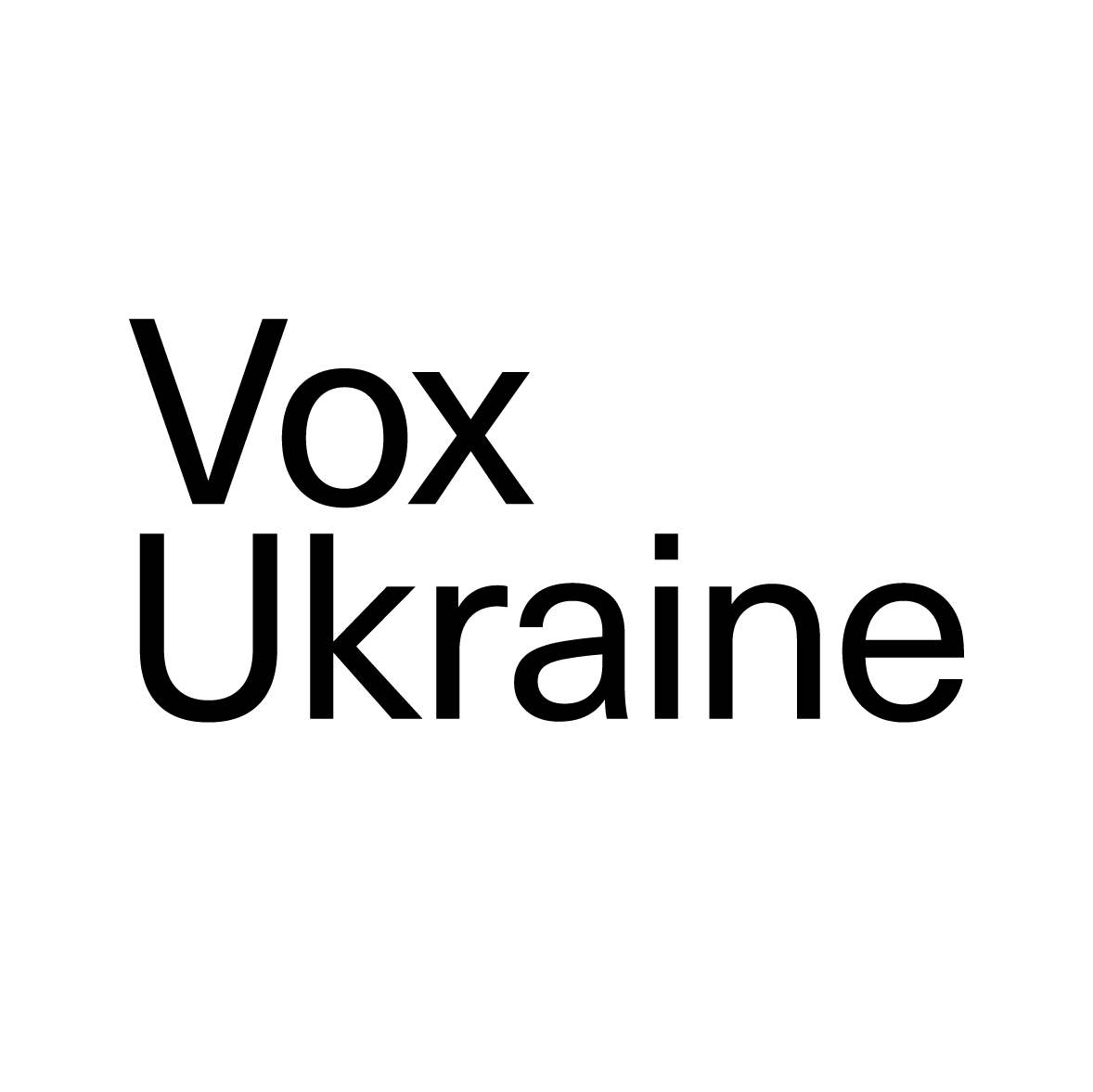Reform Index aims to provide a comprehensive assessment of reform efforts by Ukraine’s authorities. The Index is based on expert assessments of changes in the regulatory environment in five areas. Reform Index value for the 20th monitoring period (September 28 – October 11, 2015) was +0.4 points out of the possible range from -5.0 to +5.0 points. The pace of reforms continues to slow down – the index value is at its lowest value for the last 7 rounds. Even the highest marks, given to the sectors of Industrial Organization and Trade Policy and Monetary Policy and Financial Markets, are significantly lower than the acceptable speed of reforms (considered to be +2,0 points and higher).
In contrast with the previous rounds, where certain events would get high marks, the 20th round has no events with marks higher than 1 point, partially due to the absence of events that have impact on more than one sector. The slowdown has been noted by the experts: “We see the move in the right direction, but it is very slow” – says Veronika Movchan, the academic director at the Institute for Economic Research and Policy Consulting.
Chart 1. Reform Index dynamics
Chart 2. Reform Index and its components in the current round
In absolute terms the largest number of positively marked events have happened in the Industrial Organization and Trade Policy sector (overall progress marked at +1.0 point), where 4 events were marked with +1,0 point: the government has allowed “Ukrspyrt” to export the spirits with less than 80% alcohol content (CMU Resolution 627 from 26.09.2015); the registration of nitrate fertilizers was simplified (CMU Resolution 756 from 02.09.2015); corn, barley, dry milk and butter were excluded from the list of goods under price regulation for 2015/16 (CMU Resolution 771 from 30.09.2015); the deadline for the exclusion of cancelled notifications and declarations of the beginning of construction from the registry has been cut to 1 day (CMU Resolution 747 from 26.08.2015). At the same time, the experts note that such reforms are partial and isolated.
The sector of Monetary Policy and Financial Markets, which has received the score of +0.5, occupies the second place. In this sector the main event was the decision of the NBU (637 from 29.09.2015) to empower the oversight committee to apply sanctions to banks (+1.0 point). Another NBU decision (655 from 01.10.2015) – to make the banks more accountable for executing their proposals in foreign currency auctions – has received significantly lower marks (+0.1 points).
The CMU Resolution (750 from 08.09.2015) that the local governments would only be responsible for accepting into service the construction facilities of I-IV categories inside the communities was rated at +1.0 point, while Governance and Anti-Corruption sector grade amounted to +0.3 points.
Of interest is the fact that both events in the Public Finance sector – allowing disabled persons to own used cars older than 10 years (Law 688-VIII from 15.09.2015) and the ratification of International Labor Organization Convention (Law 692-VIII 16.09.2015) have received zero points, as well as the overall progress for this sector. Finally, there were no significant events in Energy Independence sector, the direction scored 0.0 points.
Reform Index aims to provide a comprehensive assessment of reform efforts by Ukraine’s authorities. The Index is based on expert assessments of changes in the regulatory environment in five areas:
- Governance and Anti-Corruption
- Public Finance and Labor Market
- Monetary Policy and Financial Markets
- Industrial Organization and Foreign Trade
- Energy Independence
For details please visit reforms.voxukraine.org
Chart 3. Value of Reform Index components and number of events September 28 – October 11, 2015
Main media partner Project partners

Attention
The authors do not work for, consult to, own shares in or receive funding from any company or organization that would benefit from this article, and have no relevant affiliations






